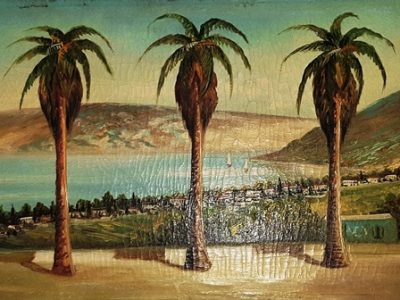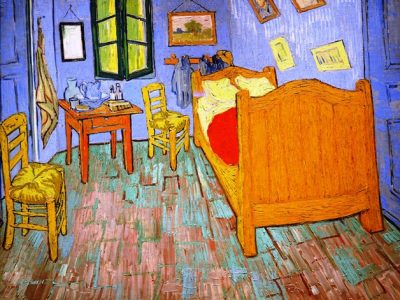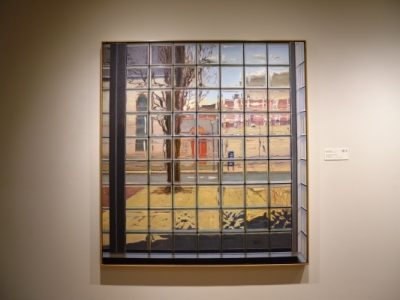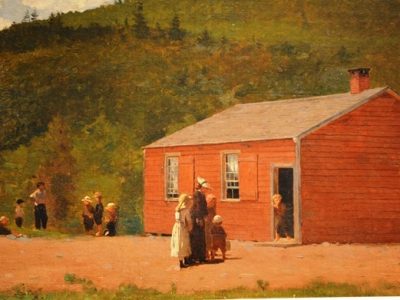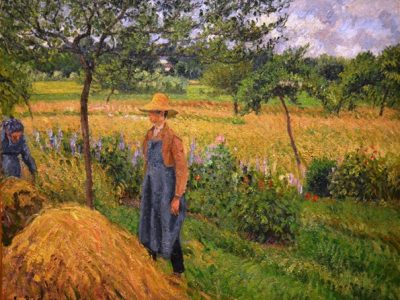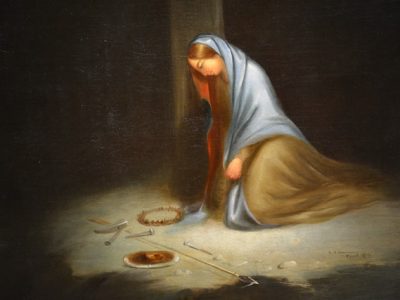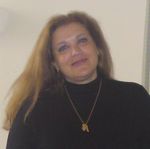
Once Blood Has Been Shed Words Can Change Nothing
I happened to find myself near a Middle Eastern store, which of late, I infrequently shop in, due to its location; I decided to take advantage of the moment, and see if they might have a tea that I was looking for.
Many years ago, a dear friend, from Greece, shared with me the pleasures of Greek Mountain Tea, which is made from Sideritis. At a stop in Virginia, I was delighted to find the tea, which I eventually brewed for friends in Florida, who also found it delicious; and thus I was looking to buy us all more tea.
As I treasure my stash of spices and herbs almost as much as, well I cannot say the books, but maybe dishes, when I find myself in shops with bulging shelves and bins, perfuming the area with possibilities of sweet and savory concoctions, I become the proverbial kid in the candy store.
It was not long before the sales clerk informed me that I could unload my boxes and bags, which I carefully clutched, onto the counter, as I continued shopping. I was pleased to lay my treasures by the register, as I explored his offerings. Eventually, I made my way to the glass cases filled with meats, olives, and cheese, as well as baked goods and sweets. I asked for a few pieces of Baklava, which after settling on walnuts over pistachio, he kindly obliged.
Our exchange was pleasant enough that I decided to venture deeper, and started by saying words that sounded so ridiculous, I am now embarrassed to share them – nevertheless, I told him that I knew this was a Middle Eastern store, not Greek, but wondered if perhaps given the shared elements of the cuisines, if the market might carry Mountain Tea?
He was polite, asked about the tea, which he was not familiar with, and showed me dried sage, thyme, and mint that was all brewable. After a few more minutes, I took the rest of my finds to the counter, expecting to soon be on my way. Instead, the clerk surprised me pleasantly.
“You are trying to be politically correct.” He said.
I was indeed surprised. Political correctness is not something I have ever been accused of before. I thought for a second before answering him; I wanted to say no, I was not trying to be politically correct, but rather trying to avoid a lecture on geography, ethnic identity, religious diversity and history. I wanted him to understand that I know that sharing the Mediterranean does not make Cretans and Egyptians one people, or that having been subjugated by the Ottoman Empire does not actually create a bond of brotherhood between Copts and Assyrians, and that Jews can be also be Persian, and that Persians are not Arabs . . . I know it is complicated, that is what I wanted to say to him. I am not trying to offend you, a man from the Middle East, by asking if you sell Greek tea, is what I wanted to say.
Instead, I looked at him, and said “we live in troubling days, when people do take offense when none is intended.”
“Yes.” He responded, and began to talk to me about how people are so afraid to be honest. I could not have agreed more with him.
He proceeded to tell me about his customers from Christians to Muslims to Jews, and how he was able to get along well with all of them; he then started to talk about food, without pausing for me to interject. He said how people from Iraq, Jordan, Lebanon, Israel, Egypt all come into his store and share their recipes for the same dish, and claim they make it the best, and their country makes it the best – but it is all roasted lamb, he said. One adds more of this or more of that, but in the end, it is all the same, he said calmly and definitively. He was right, I thought, as he brought a smile of agreement to my face, making me happy I decided to go looking for Greek tea, even if none could be found.
I then asked him where he was from, and he paused for a second and said Lebanon. I asked if he was a Christian, he said no, Muslim. I told him about my dear Lebanese friend, who was a Christian; and commented that through the years, I do not recall meeting a Muslim Lebanese, he said nothing for a few seconds, and then asked where I was from?
I told him I was Cuban. He waited again, and then brought up President Obama’s visit to Cuba. I said I was devastated by the Presidents validation of a revolution and regime which had cost my family, my people, my culture, and my history so much. I commented that the President had not even offered an acknowledgement over the cost of Fidel’s revolution, that no apology had been made for the thousands upon thousands of lives lost, the families destroyed, and dashed hope.
A woman, who I assumed was his wife, came out to the counter, from the back room, stood beside me, and looking slightly bewildered seemed to try to assess the delay in my paying for my purchase and moving on; despite her grimace, he did not stop me from speaking and thus I delved deeper into my anguish over Cuba and my desolation at knowing I would never be able to go there with my parents, and see this place that had in so many ways defined them, I told him about my Grandfather having left me and my sister’s his home, an inheritance I would never be able to claim, and how it was not the financial value of this home, but rather that this was the house my father had been raised in, the house where my mother had first met her in-laws, the house my father had drawn for me, on a hospital bed, that I might better know him and his world, it was the house I dreamt of my father in, after his death – he made me Cuban coffee, in my dream, had a baseball game on, the New York Yankees of course, not some silly team from Tampa, and told me everything was okay, that I should go back to my mother – it was the dream which gave me peace, after his death. I grew silent in my sorrow; the woman returned to the back room.
His demeanor changed, with his next comment appearing more heartfelt than anything yet said: “Once blood has been shed, words can change nothing.”
Prior to the uttering of those words, he had seemed almost to be preaching a message of hope, we may have our differences, but in the end we all eat roasted lamb. Suddenly that changed, he began to say that there was nothing President Obama could have done regarding Cuba, except not go and not stand in front of Che Guevara’s picture, and not shake hands with the murderers, which would have made me feel better – words cannot help.
He continued: “My grandfather too gave me his house. For over sixty years he hid the deed of his house and the key, which was this big.” He held his two hands in front of him, at least eight inches apart. “Can you believe that?”
I shook my head, yes.
“My grandfather was from the north of Palestine (he mentioned the town’s name), his son, my father was killed, his blood poured out for the land, my family left their home too. I was born in Lebanon, but I am Palestinian. It was very recently that I was able to go back to my family home. I took many pictures and movies, and I showed my grandfather, who cried. The house was boarded up, there is nothing there now, but a military post; but my grandfather knew his house. There are no words that would give my grandfather back his son. How does someone saying I am sorry give us back the life taken from us?”
I understood too well his pain. We were both silent for a few seconds or so, and I then asked him about the notion of reconciliation councils? Was there any path to healing? He responded: There will never be peace in the Middle East, no one in America understands. Obama and Kerry speak of peace, like everyone before them, but there is no peace for the Middle East, blood has been shed. We will not forget the blood of our family and friends; I do not know about Cuba, can there be peace there, I do not know. But for us there can be no peace. My grandfather will never forgive or forget.”
Another customer walked into the store, and interrupted our grief. The man approached the counter, the clerk and I both looked at him and surrendered our conversation in convention. My head was swirling with thoughts, but all I uttered was a platitude about America, how we can at least be grateful she welcomes us all in our forced exiles and diasporas. He agreed, looked at the new customer and finally began to ring up my purchase.
We initiated our farewells in that rather old world way, where one does not rush out the door, but rather acknowledges the pleasure of the interaction, even if the words shared are sorrowful.
It felt like there was so much more that could have been said, but I was not going to lecture him on his history, the facts regarding invading armies that encouraged Palestinians to flee their homes, with the promise that they would soon return to reclaim not only their land but so much more, those words would have no impact on the loss of his father or his home or his inheritance, just as not wanting to raise children in a communist nation, or having no guns to fight with, or the belief that Fidel would not last, had no impact on the anguish which permeated the Cuban diaspora.
After leaving, I kept thinking about his comments over blood-shed, and could not help but reflect how central the shedding of Christ blood, the perfect Lamb of God, the spotless sacrifice, was to the very foundation of my hope for eternity – the blood-shed which brought reconciliation with God, and yet how contrary this notion was to the clerk’s experience. In Christianity it is the uttering of words, words of acceptance of this sacrifice, which bring us hope and change. I also thought about how the words we shared brought me something akin to comfort. I do not disagree with his experience or argue his reality, but somehow our dialogue, regarding our shared loss, gave me a hope, which persists, as I share these words with you. That is all for now.

